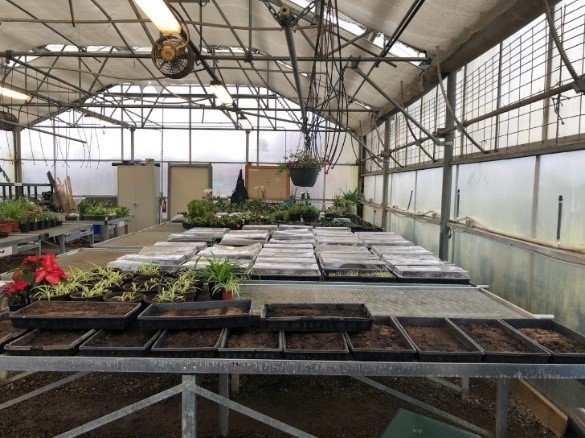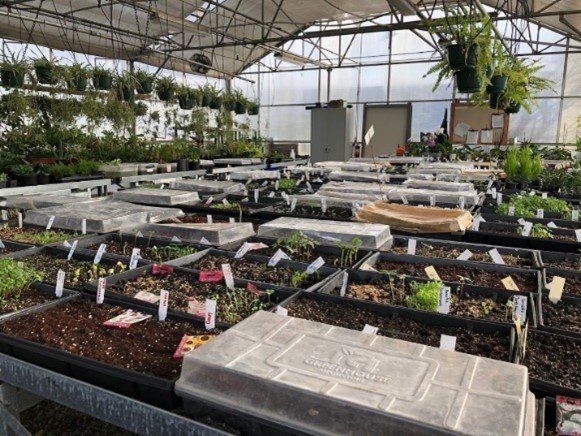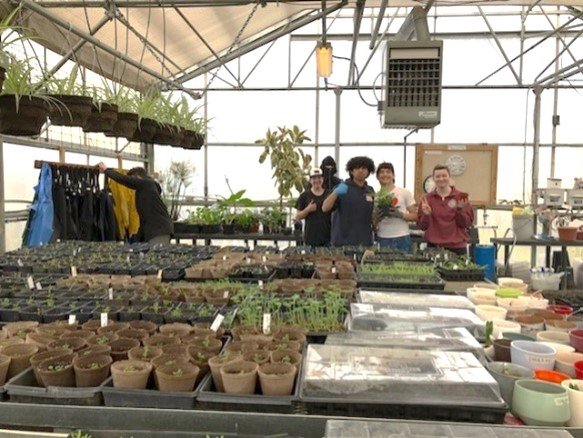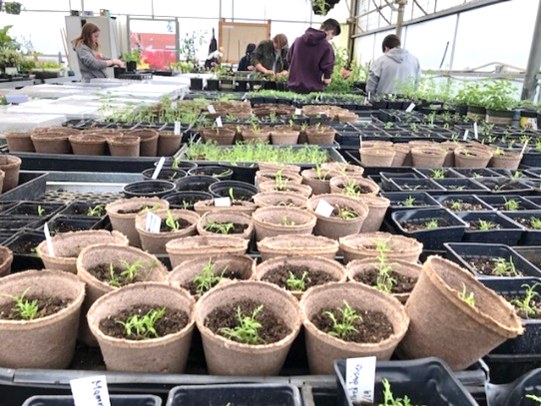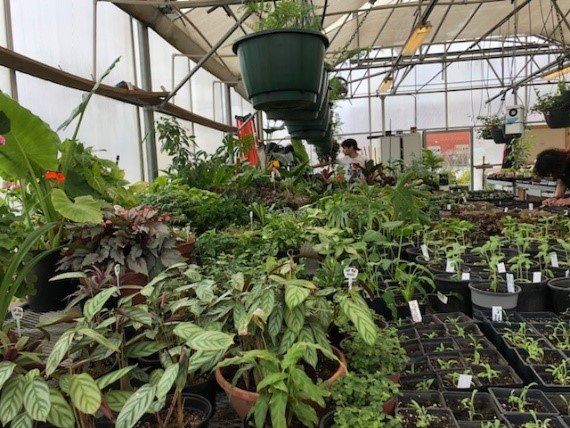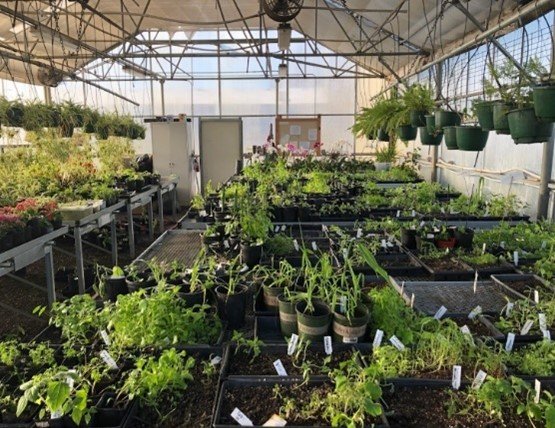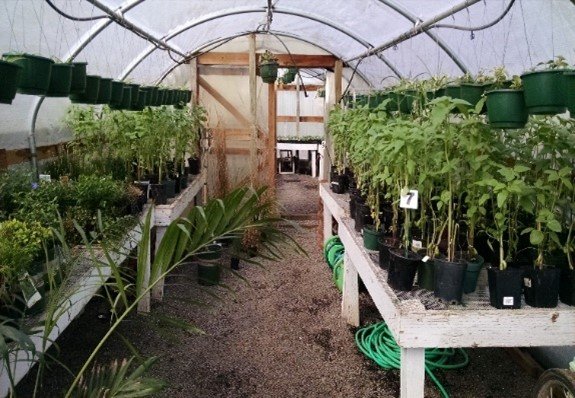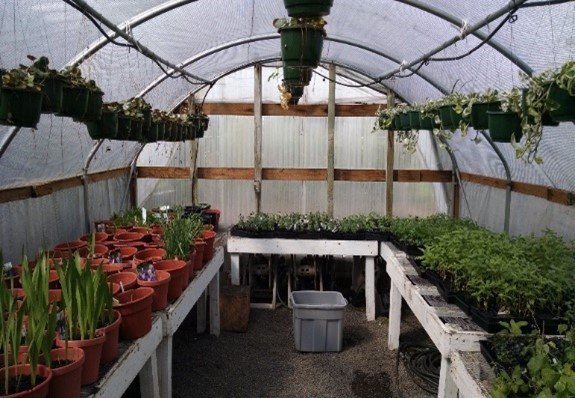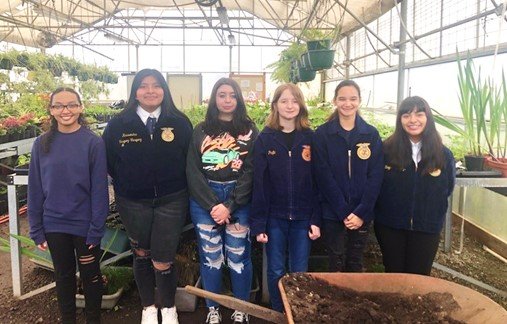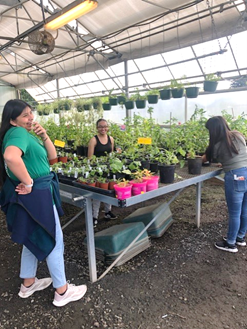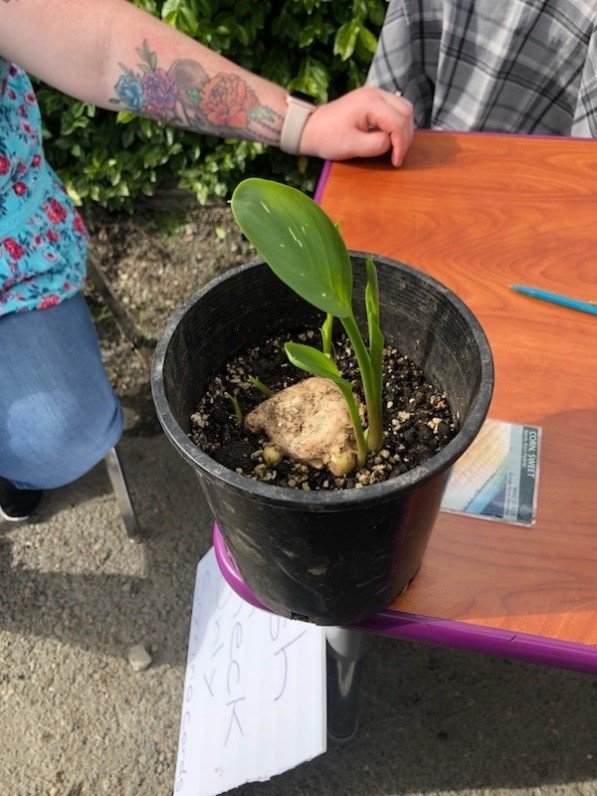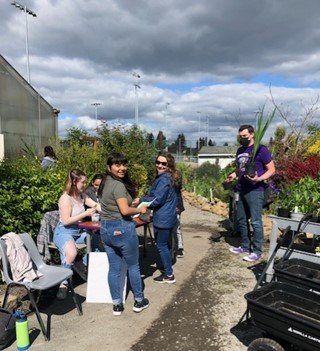High School plant sales in full swing
For this blog post, we received contributions from:
Amy Carpenter, CTE Natural Resources & Horticulture, FFA Advisor - Hudson’s Bay High School
Joni LaFave Landscape Architecture, Horticulture Science, Agriculture Land Lab - Heritage High School
You may soon see signs for plant sales as you pass by your local high school. We checked in with a teachers Amy Carpenter from Hudson’s Bay and Joni LaFave from Heritage High School to find out more about what it takes to put on a plant sale - month by month, how involved students are and the benefits received by the students and community.
For a list of plant sales, see the bottom of this post or more complete details on our event calendar.
Heritage process month by month
December-January Horticulture *Hort* students begin organizing flats, trays, containers etc. and take inventory on remaining products from the previous plant sale. Students determine products for the coming plant sale based on the previous year sales. Hort students collaborate with FFA Club Officers and collectively, they determine the quantities of materials. Our FFA Advisor, Talia Blair, gives it a final review. Costs are determined between Blair and the Horticulture teacher, Joni LaFave, as the plant sale is a joint venture for the HHS community as a whole.
January-February Hort students begin to seed and grow cold weather crops - Swiss chard, radish, beans, etc. Weather and temperatures dictate when these crops can move out of the greenhouse and into hoop houses for hardening off.
February-March students are seeding Herbs, tomatoes, sunflowers, etc. Later, these are transplanted into gallon containers and moved into hoop houses.
March-April students predominately grow perennial flowers. 80-85 percent of our flowers are pollinators. More than half our flowers are heirloom seeds, as they are from our Ag Land Lab Gardens and past generations of flowers we have previously grown and collected seeds from. Some are as old as 30 years that have been passed down from LaFave’s gardening relatives! While our heirlooms are not a specialty flower or a best variety, they are reliable and have been coveted and sentimental to the Hort students.
Why are school plant sales important?
Amy Carpenter: Sales allow students to complete and practice skills that they have learned throughout the year in the classroom and lab (greenhouse). They give students a safe opportunity to practice skills like customer service, marketing, banking and education about the plants that they have tended throughout the year.
Joni LaFave: The collaboration and partnerships between the FFA Club members and the Horticulture students are a beneficial and satisfying way to end a 5-month project!
How are they run?
Amy Carpenter: Hudson's Bay FFA actually is the organization that "runs" the sale. Our student members take the lead in all aspects of the sale with our (Advisor's) management. Funds are collected and deposited into our ASB (Associated Student Body) account.
Joni LaFave: see month by month schedule above
What are the benefits of nature for the students involved through the entire growing and selling process?
Amy Carpenter: Students get a better grasp on how food is produced from nutrients in the soil, to pest & disease to planting and care.
Joni LaFave: Hort students are in the program to learn the science of plants, how to grow and care for them as well as how to use them. Many of these students help in the family gardens and with other relatives. Nearly all the students have a story about their own gardens and plants they are growing indoors. I teach from the perspective of growing for family gardens while providing for wildlife. All our plants are grown from seeds or cuttings. Nothing is purchased in from commercial growers, which offers a different learning experience for the students caring for live curriculum, while also dealing with the realities of an ever-changing climate and temperatures, pest and disease, watering, fertilizing and some failures along the way. The students take their crops seriously and personally. And while not always perfect, the plants they grow offer HHS a packed greenhouse full of student ownership, pride and success!
What marketable skills do they gain from the experience? Life skills?
Amy Carpenter: Customer assistance, communication skills, business practices, plant care, being on time, problem-solving, adaptability, leadership and flexibility.
Joni LaFave: During the initial growing of plants, our FFA members are in competitions and conferences across Washington. They are out in the community volunteering and fundraising, networking with AG industries, and also promoting their club throughout the HHS school community. In addition, FFA members are also working on a plant sale marketing campaign including new brochures, flyers, setting up on-line access for plant information, calculating sales prices and making schedules for the during the sale. FFA officers, and members are some of the most gracious, hardworking and genuinely interested students who care about their communities, animals and agriculture sciences. Without a doubt, they live up to the creed and standards of FFA.
When competitions wind down, FFA students come out to the greenhouse and work alongside the Hort students caring for the plants, taking final inventory, prepping and moving plants for display purposes, etc. Many of the Horticulture students like to assist during the sale, or they bring their families to shop and to show off what they’ve been working on.
Where does the money go?
Amy Carpenter: The funds are used in a variety of ways. Most of the funds are put toward next school year's needs (soil, pots, seeds and plants). Some of the funds are used for FFA travel, gear and registration to events.
Upcoming high school plant sales
April 25 (Tuesday), VPS Hudson's Bay (7am-7pm)
April 26, 2023 (Wednesday)- VPS Hudson's Bay (7am-7pm); VPS Fort Vancouver (7am - 6pm)
April 27, 2023 (Thursday)- VPS Hudson's Bay (7am-7pm); VPS Fort Vancouver (7am - 5pm)
April 28, 2023 (Friday) - VPS Hudson's Bay (7am-7pm); VPS Fort Vancouver (7am - 4pm)
April 29, 2023 (Saturday) - VPS Columbia River (9am-3pm); BGSD CASEE Center *by appointment only this day, 12-4pm
April 30, 2023 (Sunday) - BGSD CASEE Center (10am-3pm - no appt. necessary)
May 4, 2023 (Thursday) - Clark College Native Plant Center (12pm - 4pm)
May 5, 2023 (Friday) - Clark College Native Plant Center (12-4pm)
May 6, 2023 (Saturday) - BGSD Battle Ground HS (8am-3pm); VPA Flex Academy (10am - 3pm); Clark College Native Plant Center (12-4pm)
May 11, 2023 (Thursday) - BGSD Prairie (3-6pm)
May 12, 2023 (Friday) - BGSD Prairie (3-6pm)
May 13, 2023 (Saturday) - BGSD Prairie (3-6 pm); Lower Columbia School Gardens @ Northlake Elementary (9am-1pm)
May 15, 2023 (Monday) - BGSD Prairie (3-6pm)
May 16, 2023 (Tuesday) - BGSD Prairie (3-6pm)

